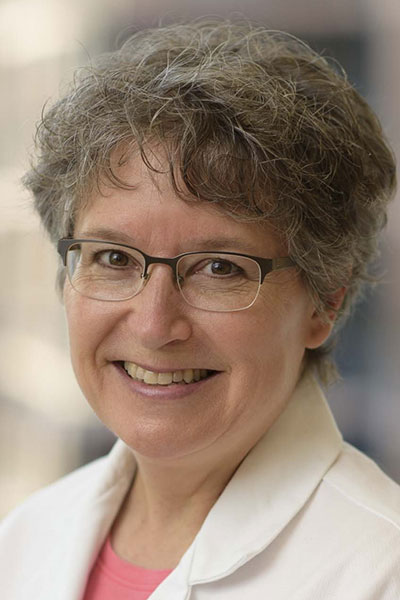MOLECULAR ASPECTS OF DCIS PROGRESSION
Wednesday, December 7 • 1:00 pm – 2:00 pm CT • Stars at Night Ballroom 3&4
Presentation: Defining clinical risk: How do we tailor therapy?

Kimberly J. Van Zee, MS, MD, FACS
Attending Surgeon, Breast Service
Memorial Sloan Kettering Cancer Center
Professor of Surgery
Weill Medical College of Cornell University, New York, NY
What is your presentation about, and what makes this topic important in 2022?
DCIS accounts for approximately 20% of all new breast cancer diagnoses. While treatment with mastectomy was once the standard, breast-conserving surgery has been the treatment of choice for about 30 years for small, screen-detected DCIS lesions. However, excision alone is associated with a significant risk of local recurrence, of which half are invasive. Randomized trials have proven that both adjuvant radiation and endocrine therapy reduce risk of local recurrence, but neither improves survival and both have potential risks and resultant morbidity.
Therefore, there have been ongoing efforts to tailor treatment for DCIS to avoid under- and over-treatment by balancing risks and benefits of adjuvant therapies. Local recurrence risk estimation can assist in treatment individualization by helping a woman and her doctors weigh the pros and cons of various options according to her individual values.
I created the DCIS nomogram to estimate those risks by using 10 readily available clinicopathologic and treatment factors. It has been validated in several independent populations and shown to have good calibration and discrimination, which are measures of predictive accuracy. It is immediately available online, free-of-charge, at www.nomograms.org. To date, no genomic assay or biosignature has been shown to be as accurate at predicting risk of local recurrence. A comparison of risk estimates produced by the DCIS nomogram and a commercially available genomic risk score will be discussed.
How/why did you become involved with this area of breast cancer research or care?
Nearly 30 years ago, I created a prospective database of all women treated for DCIS with breast-conserving surgery at Memorial Sloan Kettering Cancer Center. I have used these data to explore the many factors associated with risk of recurrence for DCIS, in an attempt to improve the care of women with DCIS. In particular, I have been intrigued by the relatively high risk of local recurrence after breast-conserving surgery for a woman with DCIS and have directed my efforts toward finding the optimal balance between local recurrence risk and morbidity associated with treatment. My goal has been to improve decision-making regarding the various treatment options.



